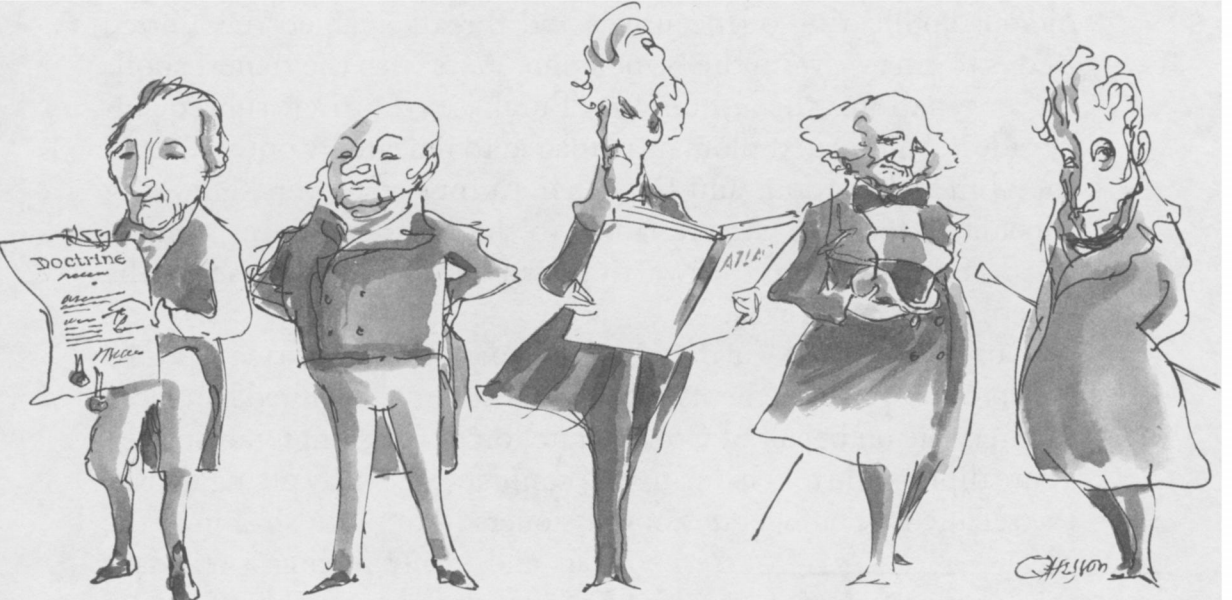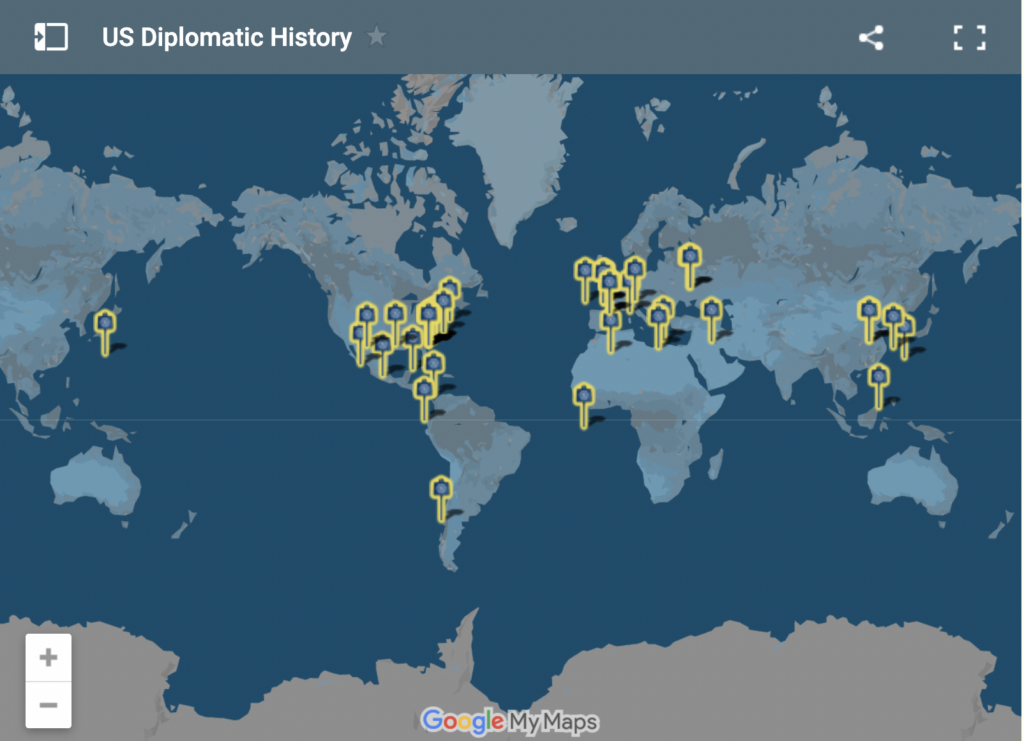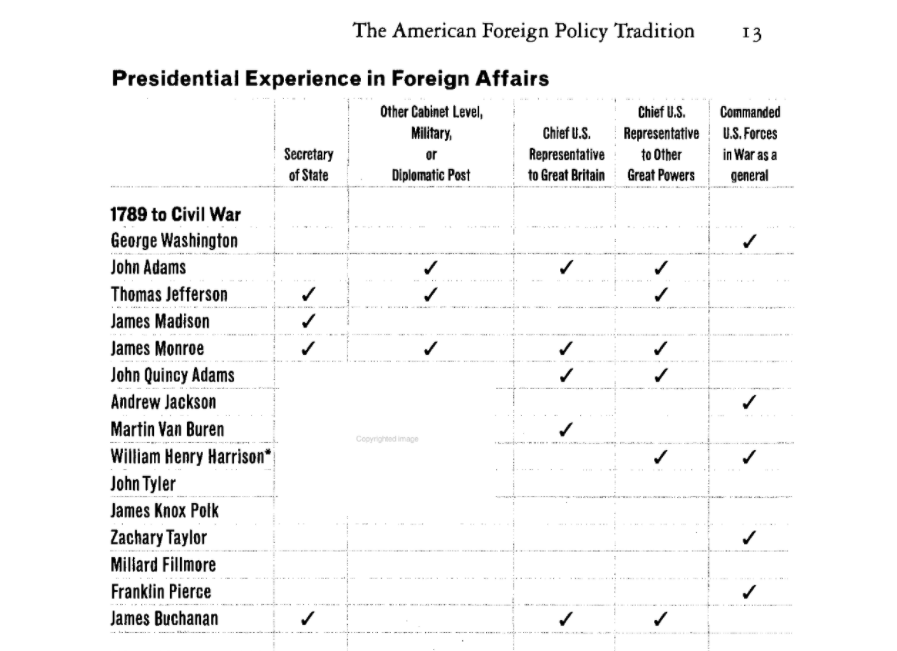What are the most important traditions in US diplomatic history?
“This volume recounts the rise of the United States from a loose grouping of small, disparate colonies huddled along the Atlantic coast of North America and surrounded by often hostile Indians and the possessions of unfriendly European powers to a commanding position in world politics and economics. It focuses on U.S. foreign policy and seeks to place it in the context of an ever changing international system. It also examines the deeply shaping role played by foreign relations in the evolution of America’s domestic institutions and values.”
–George C. Herring, From Colony to Superpower: U.S. Foreign Relations Since 1776 (New York: Oxford University Press, 2008), 1.
“Ever since George Washington’s Administration, Americans have debated the following questions: Should the national government cooperate with business to build the economy through trade and tariffs? Should the extension of democracy, the defense of human rights, and the construction of a world order based on international law stand at the center of U.S. foreign policy? Is the hope a peaceful world a beguiling illusion, and should the United States therefore build up a strong defense system to protect itself? Should Americans seek to minimize foreign entanglements and shun foreign quarrels to focus on strengthening democracy at home? To ignore the history of these debates is shortsighted, for a thorough understanding of how these issues have shaped U.S. foreign policy in the past can help shape the present –both for policymakers and for the American public.”
–Walter Russell Mead, “The American Foreign Policy Legacy,” Foreign Affairs 81 (Jan.-Feb. 2002): 164-65
Discussion Questions
- Which of Mead’s organizing questions are most intriguing to you?
- What other questions might Mead have posed that could help address recurring or important themes in U.S. foreign policy?
Student Reflections: Fall 2020

The illustration above appeared in Walter Russell Mead’s article on “The American Foreign Policy Legacy.” Can you identify the five figures caricatured here?
2013 Interview with Walter Russell Mead
In this interview, Mead, a noted diplomatic history professor at Bard College, mentions Noam Chomsky and Henry Kissinger as two figure who have two radically different views of US diplomatic history. To find out more about Chomsky and the radical critique of US diplomatic history, see Michael Henderson, “Professionals or Pariahs? Noam Chomsky, William Appleman Williams and the American Historical Profession,” Australasian Journal of American Studies 1 (July 1997): 45-70 [JSTOR]. To capture a glimpse of the Kissinger world-view on balance-of-power politics, offered at about the same time that Mead wrote his article, “American Foreign Policy Legacy” (and his book, Special Providence), see an excerpt from Kissinger’s 2001 book, Does America Need a Foreign Policy? available from the New York Times.
George Herring on the Vietnam War (2014 interview)


